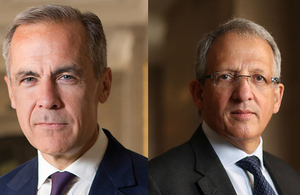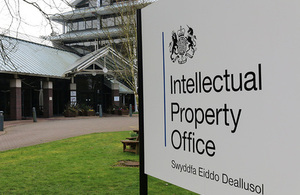News story: Mark Carney’s term extended and Sir Jon Cunliffe re-appointed at the Bank of England

Mark Carney, Governor of the Bank of England will remain in his role until 31 January 2020, the Chancellor announced today (11 September 2018). The extension was agreed in an exchange of letters between the Governor and the Chancellor published this morning. Sir Jon Cunliffe, Deputy Governor of the Bank of England with responsibility for Financial Stability has also been re-appointed, effective from 1 November 2018.
Commenting on the extension of Mark Carney’s time as Governor, the Chancellor said:
I’m delighted that the Governor has agreed to stay in his role for a further seven months to support a smooth exit from the European Union and provide vital stability for our economy.
Commenting on the re-appointment of Sir Jon Cunliffe, the Chancellor said:
I’m delighted to announce the re-appointment of Sir Jon Cunliffe for a further term as Deputy Governor, and I’m confident his extensive experience will continue to be a valuable asset to the Bank of England.
Further Information
-
The letters between the Governor and the Chancellor are available here.
-
The reappointment of Sir Jon Cunliffe was made by the Queen on the advice of the Prime Minister and Chancellor.
-
Sir Jon’s term will last until October 2023.
-
Sir Jon leads the Bank of England’s work on financial stability. He is a member of the Financial Policy Committee (FPC), the Monetary Policy Committee, the Board of the Prudential Regulation Committee and the Bank’s Court of Directors. Further information can be found here.
-
The Bank of England is the central bank of the UK. It is governed by a board of directors known as the Court of Directors. Further information can be found here.
Published 11 September 2018

